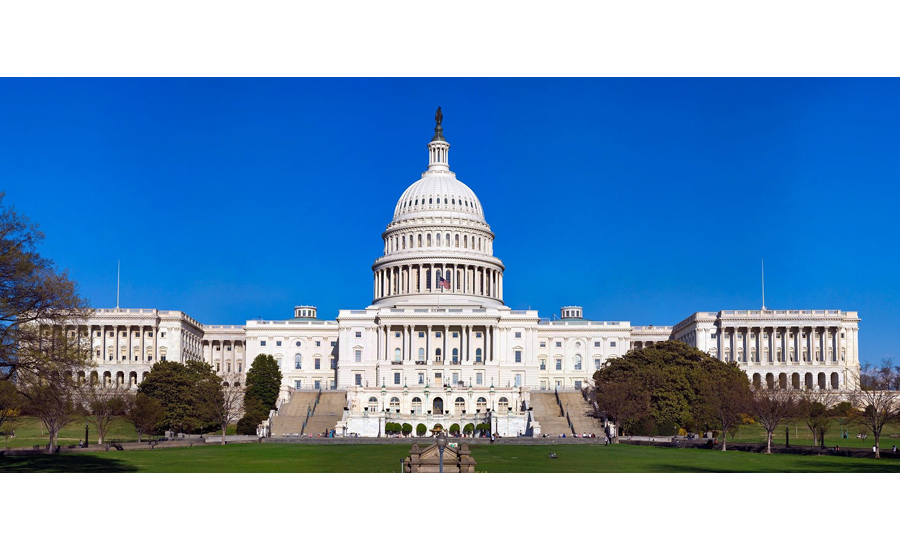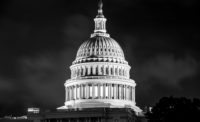This week, the House is out and the Senate is in session, mainly for committee hearings and the Trump impeachment trial.
COVID-19 relief:
- President Biden, Vice President Harris and Treasury Secretary Janet Yellen have met with business leaders (including the CEOs of JPMorgan Chase, Lowe’s, Walmart and Gap) at the White House to talk over the President’s stimulus plan.
- House committees are currently marking up bills to initiate debate and passage of President Biden’s$1.9 billion American Rescue Plan.
- So far, the highlights include providing $813.7 billion in Paycheck Protection Program funds (an increase of $7.25 billion), $25 billion for a restaurant grant program administered through the SBA and$15 billion for the Targeted Economic Industry Disaster Loan Advance Program.
- Other proposals: Paid-leave benefits for workers and tax credits for employers with less than 500 employees, an increase in weekly federal unemployment benefits to $400 until the end of August, an expansion of the Child Tax Credit and an extension of the employee retention tax credit.
- Draft legislation from Democrats on the House Ways and Means Committee would cap direct payments at $1,400 for single filers earning $75,000 and married couples earning $150,000. Payments would fully phase out for households making $200,000 a year.
- Efforts to institute a $15-per-hour minimum wage have faced resistance and took a hit this week when the nonpartisan Congressional Budget Office scored the proposal lower than expected.
- The CBO stated that the deficit would increase by $54 billion over 10 years should the minimum wage reach $15 an hour by 2025. While the proposal would result in a net pay increase of $333 billion over 10 years, it would also cause the loss of 1.4 million jobs by 2025.
- Moderate senators Joe Manchin (D-WV) and Jon Tester (D-MT) stated their desire to see a lower minimum (perhaps as low as $11 per hour) or a longer phase-in period.
Congress:
- This week, Congress is focused almost entirely on legislative committee markups in the House and the impeachment trial in the Senate.
- The trial itself continues, after a 56-44 vote in the Senate to affirm the impeachment trial is constitutional. Sens. Bill Cassidy (R-LA), Susan Collins (R-ME), Lisa Murkowski (R-AK), Mitt Romney (R-UT), Ben Sasse (R-NE) and Pat Toomey (R-PA) voted with their Democratic colleagues to allow the trial to proceed.
- On Tuesday night, Minority Leader Mitch McConnell (R-KY) reportedly told his caucus that the vote to convict former President Trump would be a matter of conscience, even if senators voted against having the trial itself.
- 67 votes will be required to convict, something that continues to appear unlikely.
Letters from ASA:
- ASA signed onto a letter urging House and Senate leadership to protect the Net Operating Loss (NOL) provision passed in last year’s CARES Act.
- ASA sent two letters to state legislatures in Arizona (opposing HB 2886) and Hawaii (requests changes to HB 116) regarding water efficiency and showerhead flow rates.
State legislation tracking:
- Arizona (HB 2286/SB 1037): Water efficient plumbing fixtures.
- California (AB 100): Endpoint water fixtures/lead reduction.
- Hawaii (HB 116): Energy efficiency.
- Maryland (HB 33): Establishing a Climate Crisis Initiative in the Department of the Environment for certain purposes; establishing a greenhouse gas reduction target of 60% from 2006 levels by 2030 and net-zero by 2045.
- Massachusetts (HD 1296): An Act to Reduce Greenhouse Gas Emissions by Permitting Local Option All-Electric Buildings and Homes Ordinances.
- Massachusetts (SB 9): An Act creating a next-generation roadmap for Massachusetts climate policy.
- New York (S 1559): Establishes a Green New Deal.
- Virginia (HB 1811): Virginia Public Procurement Act; preference for energy-efficient and water-efficient goods. Provides that in the course of procuring goods, if a public body receives two or more bids for products that are Energy Star certified, meet Federal Energy Management Program (FEMP) designated efficiency requirements, appear on FEMP's Low Standby Power Product List, or are WaterSense certified, such public body may only select among those bids.
- Washington (HB 1084): Reducing statewide greenhouse gas emissions by achieving greater decarbonization of residential and commercial buildings.
- Washington (HB 1091): Reducing greenhouse gas emissions by reducing the carbon intensity of transportation fuel.





